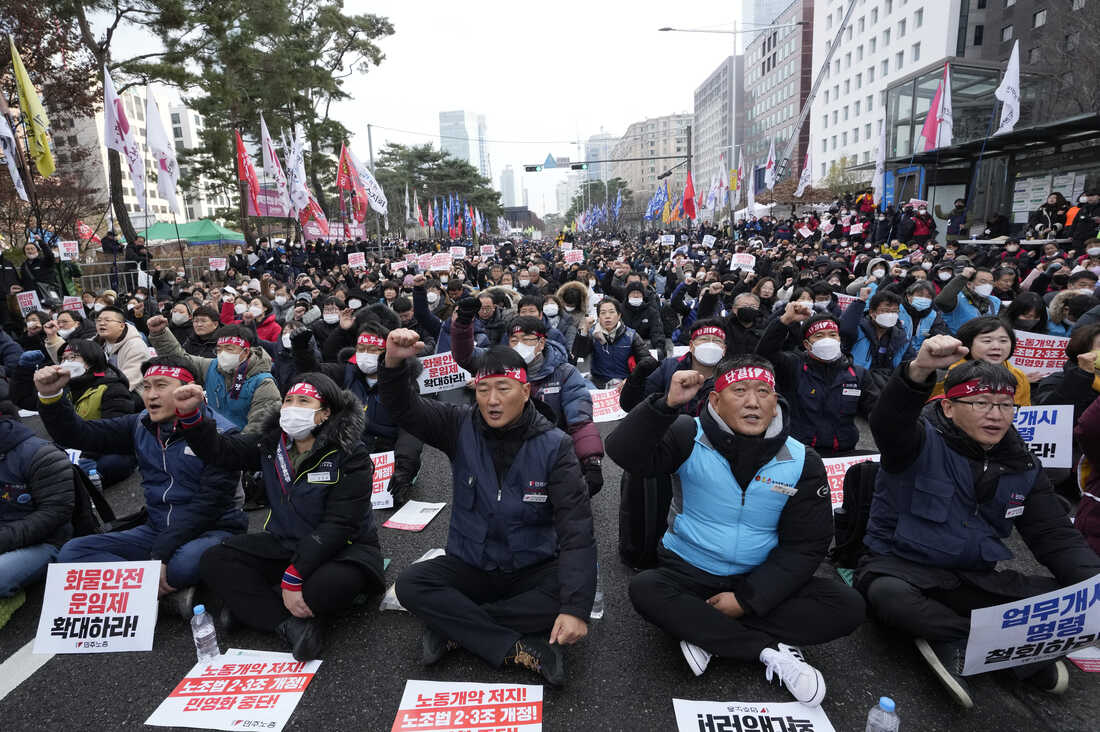South Korea consistently ranks among the top countries in global democracy indices, most recently securing the 24th spot in the Economist Intelligence Unit’s Democracy Index for 2022. With a score of 8.03, the nation is classified as a “full democracy.” However, recent political turmoil, historical authoritarian legacies, and unresolved structural issues raise serious questions about the validity of such rankings and the potential biases embedded within these indices.
Recent Political Crises: Cracks in the Democratic Façade

In December 2024, President Yoon Suk Yeol declared martial law, citing “anti-state forces” as a threat to national stability. The declaration, a rare move since South Korea’s democratization in 1987, granted sweeping powers to the military, including censorship, curfews, and suspension of civil liberties. Public outcry and swift action by the National Assembly overturned the martial law, but the episode revealed alarming vulnerabilities in the country’s democratic framework.
Key concerns include:
- Military Oversight: The military initially resisted the Assembly’s decision to lift martial law, highlighting lingering military influence over civilian governance.
- Impeachment Evasion: Although an impeachment motion was introduced against President Yoon, it failed due to a partisan boycott, signaling a lack of accountability for executive overreach.
- Public Distrust: Protests and strikes by labor unions revealed deep-seated discontent with the government’s actions, further polarizing the nation.
Historical Precedents: Democracy Tested by Coups and Assassinations
South Korea’s political history is rife with instances of authoritarianism, military coups, and political violence. These events have left an indelible mark on its democratic development:
- Military Coups:
- 1961: Major General Park Chung-hee seized power through a military coup, leading to 18 years of authoritarian rule.
- 1979: General Chun Doo-hwan orchestrated another coup following Park’s assassination, further entrenching military dominance.
- Political Assassinations:
- Kim Gu (1949): A revered nationalist leader assassinated under controversial circumstances.
- Park Chung-hee (1979): Assassinated by the director of the KCIA, reflecting internal political strife.
- Suppression of Pro-Democracy Movements:
- 1980: Chun Doo-hwan’s government brutally suppressed the Gwangju Uprising, killing hundreds of civilians.
These events underscore South Korea’s struggle to establish and maintain democratic norms, even as it transitioned from authoritarianism to civilian rule.

Western Parallels: Undemocratic Practices in Supposed Democracies
Instances of democratic erosion are not unique to South Korea. Similar attempts to undermine democratic norms have been observed in Western nations, raising questions about the credibility of democracy indices that consistently rank these countries highly.
- The U.S. Political Landscape:
- Trump Targeted: Attempts to politically undermine former President Donald Trump include high-profile investigations and cases, many of which have been criticized as politically motivated. Some even alleged assassination plots, revealing a troubling pattern of partisan targeting.
- Hunter Biden’s Scandal: President Joe Biden’s unconditional pardon of his son, Hunter Biden, amid allegations of corruption, raised significant concerns about nepotism and double standards in the justice system. Such actions undermine trust in democratic institutions.
- Bias in Western Democracies:
- These instances highlight that democratic backsliding is not limited to non-Western nations. Partisan politics, misuse of executive power, and unequal application of justice undermine the democratic principles these countries are expected to uphold.
A Flawed Democracy: Lingering Issues
Despite its high ranking on the Democracy Index, South Korea exhibits characteristics of a flawed democracy, raising concerns about the criteria used in such evaluations:
- Partisan Polarization:
Political discourse in South Korea remains deeply divided, with frequent gridlock in the National Assembly. Partisan loyalty often takes precedence over public accountability, as evidenced by President Yoon’s survival of impeachment proceedings. - Judicial and Executive Overreach:
Cases of judicial bias and executive overreach, such as Yoon’s declaration of martial law, highlight systemic vulnerabilities in the separation of powers. - Press Freedom Concerns:
While South Korea has a robust media landscape, journalists and media outlets critical of the government face harassment and censorship, undermining freedom of the press. - Socioeconomic Inequality:
Rising income inequality and lack of political representation for marginalized groups challenge the inclusivity of South Korean democracy.
Democracy Indices: Bias or Blind Spot?
The Democracy Index’s high rating for South Korea and Western democracies like the U.S. raises questions about the objectivity of such rankings. Factors to consider include:
- Weightage of Electoral Process:
South Korea’s well-functioning electoral system and America’s voter turnout processes are often emphasized, overshadowing issues like judicial bias and civil liberty violations. - Neglect of Historical Context:
Indices may fail to account for the lingering impact of authoritarian rule in South Korea or the rise of partisanship in the U.S., both of which affect the democratic health of these nations. - Bias Toward Geopolitical Allies:
Rankings may favor nations strategically aligned with Western powers, even when internal democratic practices are questionable.
Implications for Global Democracy Evaluations
South Korea’s and the U.S.’s cases highlight the need for more nuanced approaches to evaluating democracies. Rankings that rely heavily on quantitative metrics may fail to capture the complex realities of governance, accountability, and civil liberties.
- Reassessing Criteria:
Indices should place greater emphasis on civil society strength, press freedom, and public trust in institutions. - Incorporating Public Sentiment:
Nationwide protests, like those in South Korea and backlash against systemic issues in the U.S., reflect public dissatisfaction that indices often overlook. - Avoiding Geopolitical Bias:
Rankings must strive for objectivity, free from the influence of a country’s strategic alliances or global standing.
Conclusion: A Wake-Up Call for Democracy Rankings
South Korea’s journey from authoritarian rule to democracy is commendable, but its high ranking on the Democracy Index belies persistent issues that challenge its democratic health. Similarly, democratic erosion in Western nations, including politically motivated actions and misuse of executive power, demonstrates that no country is immune to flaws.
For democracy indices to maintain credibility, they must adopt a more comprehensive approach that accounts for systemic flaws, public sentiment, and historical context. South Korea’s and the U.S.’s experiences serve as reminders that democracy is not just about elections but about building resilient systems that uphold accountability, inclusivity, and civil liberties.